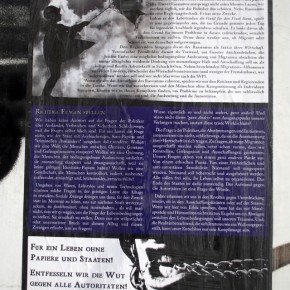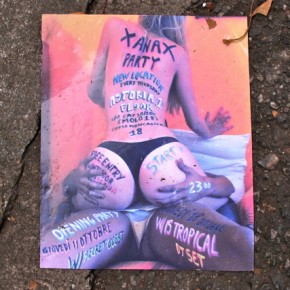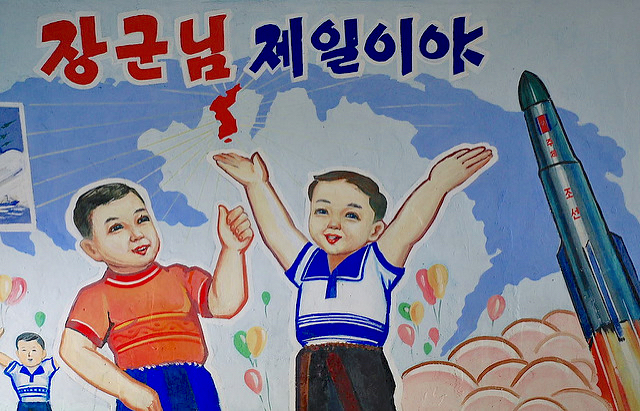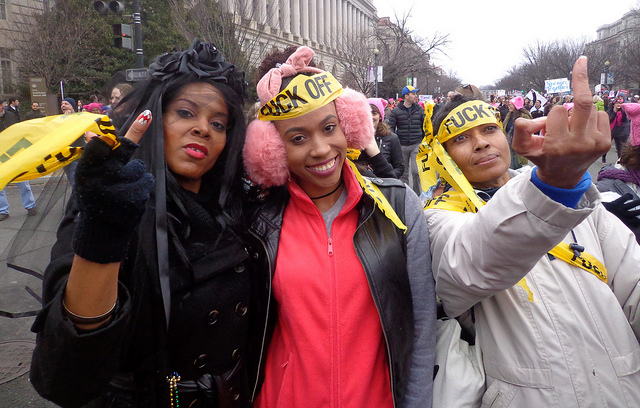In the pogrom-like atmosphere gathering apace in Pakistan, the religious majority – Sunni Muslims – do not perceive that what is at stake is not an ‘altruistic’ concern for weak, insignificant minorities. The market, and its partner nationalism, make us think that ‘conscience’ is reserved for exceptional moments of humanitarianism, rather than being part of everyday life. This destitute conception of morality has come to pervade more and more of our lives, including our ‘religion’, which increasingly appears as a domain distinct from its own hearts. Like everything around us, our faith and morals are fast becoming content-free.
What is at stake is the character of life as such, inclusive above all, of the majority community and the integrity of its own nature and traditions. One of the key teachings of the Abrahamic religions (and beyond, for example, in the Indian concept of karma) is the impact that injustice and violence have on the soul. Simply put, one cannot discriminate against others without becoming a scoundrel to oneself.
Though it cannot be denied that there are pleasures to be experienced as such, the destitute, transient quality and worth of capitalist nationalism has worked to suppress this basic truth. It is in fact quite possible to survive, to live a long life (even one endowed with wealth, power and status,) and yet never have experienced the reality of life and its pleasures. Without the enlivenment of the soul, even if one survives, we may as well be dead. Indeed, it may well be that our present condition increasingly resembles death more than it does life.
Most immediate to the question of ‘minorities’, the ricocheting impact of injustice and violence on the the perpetrator is evident in the rapidly declining quality of the life of Sunnism itself. Evident not just in the events of violence against minorities, but in the everyday emptying of Sunni piety of its righteousness, and the increasingly menacing quality and sanctimoniousness of Sunni devotionalism.
The most horrifying – and in the same measure, revealing – recent example of this is perhaps, the disclosure that the Christian child, Rimsha Masih’s accuser, the mosque-imam, Hafiz Mohammed Khalid Chishti, had himself planted the ‘blasphemous’ materials in the child’s trash of which he had accused her. The writer, Mohammed Hanif has rightly remarked in a recent article on blasphemy cases in Pakistan that: “I am certain that even when Chishti was stuffing pages from the Qur’an in the poor girl’s trash bag, he believed he was doing Allah’s work.”
Cleric ‘Chishti’ (a stain on the exalted name of the largest Sufi silsila in South Asia) may be a particularly notorious scoundrel, but the twisted disposition of his piety is by no means devoid of affinity with the emerging society of his co-sectarians. Proof of this is the fact that whereas a menacing mob of hundreds had collected to demand action against the Down’s Syndrome Christian child at the time of her accusation, no such outrage was evidenced in the wake of the scandalous revelations about her (Sunni) Muslim accuser – a truly terrifying derangement of priorities and of the quality of piety behind them.
At the most general level, it is hardly a contentious claim that Sufism, tasawwuf, has since its origin – an origin shared with Shiism, above all in the person of Imam Ali, to whom almost all the Sufi silsilas trace their beginnings – been the heart and life of Sunni Islam (which, it must be said, would without it, historically appear to be merely a doctrine of the legitimation of de facto order and power.) Far from being some minor ‘sect’ or ‘mystical cult’ – modern categories that correspond little to our historical, religious and social experience – ‘Sufism’ has in fact pervaded in innumerable ways, the everyday social space of Sunni Islam, existing as the enlivening articulation and continuing inheritance of the aesthetic, ethical, philosophical and spiritual content of the religion.
Coinciding with the Platonic teaching of theosis, (‘becoming God-like,’) Sufism has historically been the essential religious content of Sunni Islam proceeding from Prophet Muhammad’s injunction to “cultivate the ethos of the Divinity,” an injunction practiced above all by Imam Ali, gazing on whose face the Prophet famously said was like glimpsing the face of the Divinity itself.
Thus, it now follows a strict historical logic that the gathering destruction of Pakistan’s ‘minorities’ (including, massively, the Shia, the ‘partisans of Ali’) has coincided with an unprecedented assault on tasawwuf . Not just in recent attacks on the millennial graves of its greatest exemplars – but suicidal attacks on the sacredly peaceful sanctuaries of the saints of Islam, who in their lives and actions made alive its teachings. This unprecedented assault on tasawwuf is, in fact, just as spectacularly evident in the everyday erosion of its expansive ethos, concepts and teachings. The destruction of Pakistan’s minorities coincides with the disinheritance of the vast treasures historically given in Sunni Islam, which is fast becoming a monstrous shadow of itself.
We may survive the pogroms. However, without the soul that makes life worth living, that makes its deepest, highest pleasures possible. And without this life, we might as well be dead. In fact, for the most part, we evidently already are: with our pleasures increasingly those of the living dead, the infernal pleasures of vampires.
Screenshot from Zinda Laash (“The Living Corpse,” AKA “Dracula in Pakistan.”) Published under a Creative Commons license.





